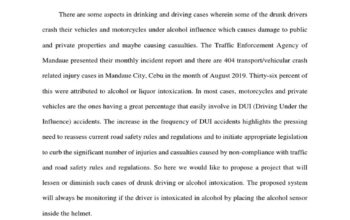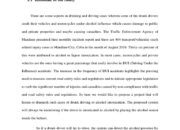In the context of contemporary computational paradigms, the necessity for increasingly sophisticated approaches to information processing has emerged. The advent of quantum computing represents a paradigm shift, one poised to revolutionize not merely the mechanics of computation but also the very fabric of digital information manipulation. Central to this evolution is the concept of quantum logic, a foundational element that transcends traditional binary paradigms. This discourse elucidates the intricacies of quantum logic, its implications for bit manipulation, and its prospective impact on the technological landscape.
Traditional computing mechanisms operate on classical logic, wherein data is represented as discrete bits, each embodying a state of either 0 or 1. This binary framework, while robust, is intrinsically limited by the constraints of classical physics. As such, quantum logic arises as a formidable alternative, harnessing the principles of quantum mechanics to create qubits—quantum bits that can coexist in superposition, portraying both 0 and 1 simultaneously until measured.
At the core of quantum logic lies the principle of superposition. Unlike classical bits that follow a definitive state, qubits can exist in multiple states concurrently due to their quantum nature. This property allows for a vast parallelism in processing. Consider an analogy: while a classical computer might traverse a binary tree hierarchically, evaluating one path at a time, a quantum computer can explore numerous paths simultaneously. This maximizes efficiency and drastically reduces the time required for complex computations, particularly in fields such as cryptography, optimization, and artificial intelligence.
Entanglement further augments the capabilities of quantum logic. When qubits become entangled, the state of one qubit is intrinsically linked to the state of another, regardless of the distance separating them. This phenomenon enables a computational approach that leverages interdependencies between qubits. The implications for communication and information security are profound; entangled qubits can facilitate secure transmission methods through quantum key distribution, rendering eavesdropping virtually impossible due to the principles of quantum measurement.
Moreover, quantum gates play a pivotal role in the architecture of quantum logic. These gates manipulate qubits through unitary operations, effectively translating algorithms into quantum circuits. Quantum gates operate under the rules of linear algebra, employing matrices to perform transformations upon the states of qubits. The diversity of quantum gate combinations permits the execution of complex algorithms, such as Shor’s algorithm for integer factorization, which exemplifies a quantum algorithm that demonstrates exponential speedup over its classical counterparts.
As quantum logic takes root in various technological sectors, several potential applications emerge. One salient area is in the realm of materials science. The simulation of quantum systems, such as chemical reactions or the properties of novel materials, can transcend the limitations of classical computation. With quantum computers, researchers can model molecular interactions that are otherwise intractable using classical methods, broadening our understanding of fundamental chemical processes.
Additionally, the financial sector stands poised to harness the power of quantum computing. Portfolio optimization, risk analysis, and complex financial modeling can benefit from the accelerated processing capabilities afforded by quantum logic. Financial institutions are exploring this technology to enhance algorithmic trading strategies and to refine simulations that encompass a wide array of market conditions, thereby gaining a competitive edge.
Healthcare represents yet another frontier for quantum advancements. Quantum algorithms possess the potential to analyze vast datasets rapidly, assisting in the identification of molecular patterns that contribute to various diseases. Furthermore, drug discovery—a meticulous and time-consuming process—could be transformed through the application of quantum computing, resulting in expedited timelines for developing new therapeutics.
However, the journey towards the ubiquitous realization of quantum computing is fraught with challenges. The inherent fragility of qubits, characterized by their susceptibility to decoherence, poses significant technical hurdles. Maintaining quantum states is contingent upon isolating qubits from their external environment, a task that demands advances in error correction and fault tolerance. Furthermore, the quantum supremacy achieved in controlled environments must translate to real-world applications that can provide tangible benefits over classical systems available today.
Looking ahead, interdisciplinary collaboration will be paramount in propelling quantum technologies into practical utility. Scholars in quantum physics, computer science, and engineering must coalesce to address existing challenges and to innovate hardware and algorithms that translate quantum advantage from theoretical frameworks into applied solutions.
In conclusion, the evolution of quantum logic heralds a novel epoch in bit manipulation, establishing profound ramifications for tomorrow’s technological landscape. The shift from classical to quantum computing is more than a mere enhancement of existing methodologies; it signifies a monumental transformation in how information is processed, secured, and analyzed. As quantum logic continues to unfold, its expansive possibilities are limited only by the constraints of our creativity and ambition in reimagining the digital frontier.












